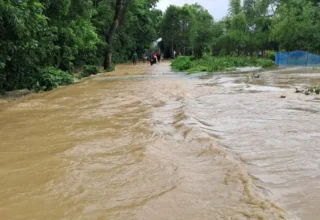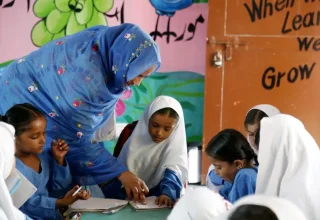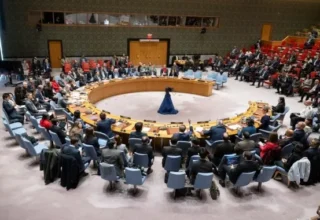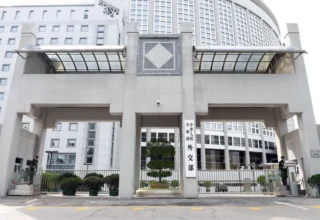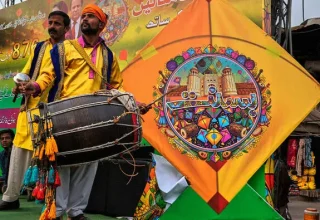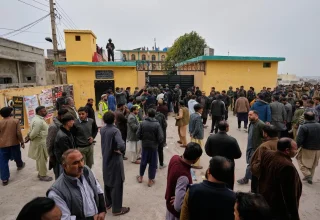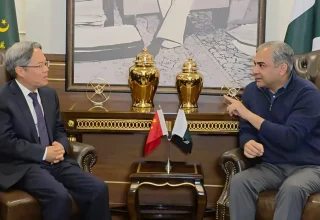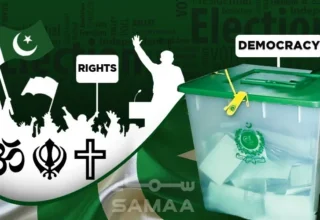
As Pakistan gears up for general elections this year, the country’s religious minorities appear dejected over their parliamentary representation. The current electoral system, which allows minority candidates to be elected by Muslim voters, has faced criticism for its ineffectiveness in providing meaningful democratic representation to non-Muslim communities.
In this regard, some very important questions come up in my mind which urged me to write this article which delves into the challenges faced by Pakistan’s minorities, explores the need for granting them the right to directly elect their representatives, and examines the potential impact on the country’s political landscape.
Pakistan’s religious minorities have long been facing various challenges that hinder their social, economic, and political progress. From underemployment to issues of undercounting and victimization under blasphemy laws, forced conversions, and marriages, minorities feel marginalised and underrepresented in the country’s governance.
Under the current constitution, minority candidates are elected by Muslim voters, but the historical electoral data indicates that the chances of minority lawmakers being elected by Muslim voters are slim. Members of the minority community have expressed the need for dual-voting rights, which would enable them to directly elect their representatives on reserved seats.
However, some human rights activists argue that this might lead to the reestablishment of a separate electorate, further alienating minority groups.
At present, members of the minority community vote for a general candidate in their provincial and national assembly constituency. Legislators on minority-reserved seats are indirectly elected through a proportional system based on nominations from political parties winning general seats. This indirect representation is believed to be ineffective in addressing the genuine concerns of minorities.
Hindus, constituting the largest religious minority in Pakistan, face numerous challenges ranging from social discrimination to forced conversions. They primarily reside in Sindh province, where they make up the majority of the population.
Renowned figures like Rana Chander Singh and Dr Ramesh Kumar Vankwani have played significant roles in advocating for minority rights in the country. Granting Hindus the right to directly elect their representatives can empower their community and enable them to address their unique concerns effectively.
Christians form the second-largest religious minority in Pakistan, and they are predominantly found in Punjab province. Despite their contributions to various fields, including education and healthcare, Christians often experience discrimination and marginalization.
Leaders like Shahbaz Bhatti and Julius Salik have been influential in advocating for the rights of Christians. Allowing direct representation for Christians can be a crucial step in amplifying their voices and ensuring their interests are represented in the political arena.
The Sikh community constitutes a smaller but significant religious minority in Pakistan, mainly concentrated in the Khyber Pakhtunkhwa and Punjab provinces. Sikhs have a rich history and have contributed to Pakistan’s cultural and economic fabric. Notable personalities like Radesh Singh Tony and Sardar Ramesh Singh Khalsa have actively advocated for Sikh rights.
According to the Election Commission’s 2022 figures, minorities account for approximately 4 million of the country’s 122 million registered voters. Hindus make up the majority, followed by Christians, Sikhs and other minority groups. While the minority vote share has increased since 2018, minorities remain deprived of enjoying the benefits of being crucial voters.
Article 51(4) of the Constitution reserves ten seats for non-Muslims in the National Assembly and 24 seats in the four Provincial Assemblies under Article 106. These reserved seats are allocated proportionally among political parties that secure at least 5% of the seats in the assemblies.
While this measure aims to ensure minority representation, it falls short of providing an effective voice for a community that constitutes less than 4% of Pakistan’s population. Surveys reveal the existence of 96 constituencies in the National and Provincial Assemblies where minorities hold significant voting strength. Winning the support of these minority-dominated constituencies is crucial for candidates seeking victory. However, despite the numerical advantage, Muslim candidates represent these constituencies, further highlighting the lack of direct representation for minorities.
Security challenges have also contributed to hampering minority voter turnout in Pakistan. To ensure the full participation of minorities in the electoral process, it is essential to address their security concerns. Confidence-building mechanisms need to be implemented by leading political parties to assure minorities that their voices will be heard and their interests protected.
In the early 1990s, minorities in Pakistan had a more united front, which allowed them to advocate for their rights more effectively. To regain political leverage, it is imperative for minorities to unite on a single platform, promoting a stronger collective voice.
Given the challenges faced by Pakistan’s religious minorities and the historical ineffectiveness of the current electoral system, there is a growing demand for granting them the right to directly elect their representatives.
This move would allow minorities to choose leaders who genuinely understand and advocate for their needs, aspirations, and concerns.
Directly electing representatives would bolster minority voter turnout and encourage their greater engagement in the democratic process.
Meanwhile, elected representatives would be more accountable to their constituents, as they would be directly chosen by them. This could lead to a stronger focus on addressing minority-specific issues. Granting direct voting rights would empower minorities and foster a sense of inclusivity, promoting national unity.
As Pakistan moves toward its upcoming general elections, addressing the concerns of religious minorities regarding their parliamentary representation is vital for the country’s progress toward an inclusive and thriving democracy.
Granting the right to directly elect their representatives could be a transformative step in empowering Pakistan’s non-Muslim voters and ensuring their meaningful democratic participation. By embracing diversity and promoting pluralism, Pakistan can pave the way for a brighter and more harmonious future for all its citizens.



















